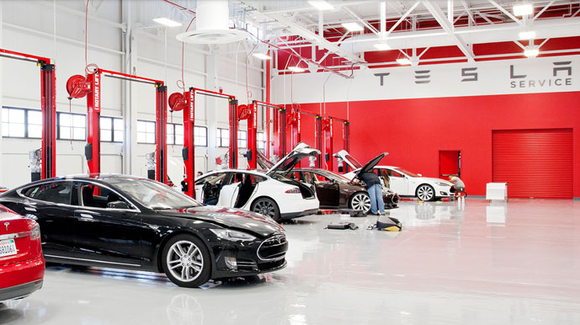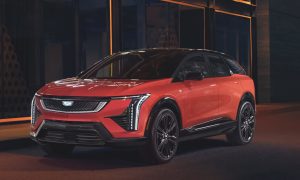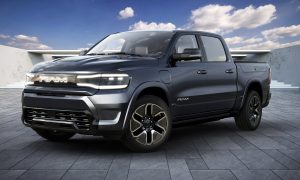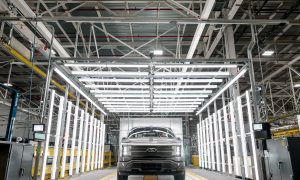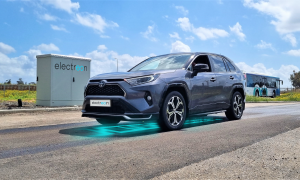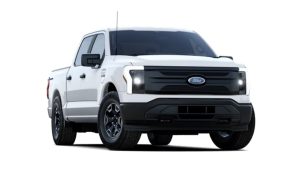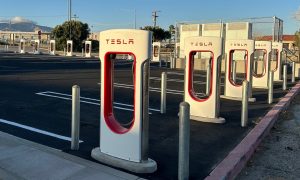News
How Tesla Challenges Other Car Makers
Tesla challenges other car makers to build better cars says Diarmuid O’Connell, Telsa’s vice president of business development at an industry conference.
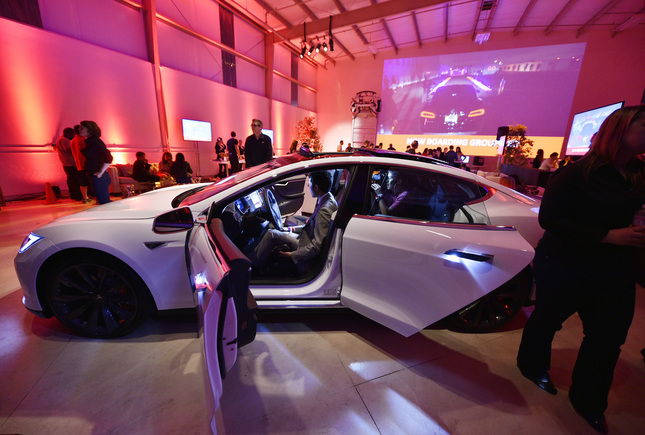
Diarmuid O’Connell, Tesla’s VP of business development, had harsh words for competitors last week at the CAR management briefing seminars in Michigan. He told the group that Tesla challenges other car makers to build better cars.
“You can split the market of EVs into two programs,” he said. “Many are compliance programs. Exceptions are Nissan, ourselves and BMW. Most are focused on minimum compliance, lowest common denominator behavior, and the vehicles reflect that. In some respect, they are appliances, in terms of the way they look.”
CARB And The EPA
His remarks come at a time when two important regulatory programs are up for review. The California Air Resources Board is taking a look at its zero emissions vehicle policies and the Environmental Protection Agency is considering changes to its CAFE standards.
Traditional car makers are trying to get both agencies to relax those standards, but O’Connell says they should stop trying to “slow walk” the rate of progress toward a emissions free future and get busy building better cars. He says his company wants California and the EPA to raise their standards, not relax them.
“From an empirical standpoint, the [regulations] are very weak, eminently achievable and the only thing missing is the will to put compelling products on the road,” he said, according to The Wall Street Journal.
This week, Mary Nichols, CARB chairwoman since 2007, announced that she isn’t satisfied with having just a few electric cars on California roads. The current standard calls for 2.7% of all cars sold in California to be electric. Nichols wants to set the bar higher. In fact, she would like it if all the cars sold in California were electric by 2030.
For its part, the automotive industry is busy telling the EPA that the current CAFE standards are too high. Any further tightening would be bad for business. “We need consumers to buy them in high volumes to meet the steep climb in fuel economy standards ahead,” the Alliance of Automobile Manufacturers, an industry lobbying group, told the conference. The implication is that higher standards will kill the automotive business, cause massive layoffs, and have a negative impact on the economy.
This is precisely the same argument the automobile industry made about safety related changes in the ’50’s, seat belts in the 60’s, exhaust emission in the 70’s, airbags in the 90’s and better crash test performance at the beginning of the 21st century. Its complaints today are just more of the same.
CAFE Olay
The furor over EPA standards is actually a tempest in a teapot. On the surface of it, the 54.5 mpg requirement by 2025 seems like a huge increase above present day performance. But in reality, that standard is based on the old EPA mileage testing protocol, which was amended several years ago because it resulted in numbers that were wildly optimistic.
When the EPA adopted a new standard designed to better reflect real world expectations, it did not apply the new standard to the computation of the 2025 goal. If it did, that 54.5 mpg number would convert to around 37 mpg — which many of today’s cars are already capable of achieving.
To suggest that car companies cannot achieve a CAFE of 37 mpg using the current EPA protocol is patently absurd. In fact, a representative of Johnson Controls, one of the largest suppliers of components to the automobile manufacturing , said last year that car makers can easily meet the new standard and, in fact, many are already doing so today with internal combustion cars.
Charging Technology
One area where other manufacturers need to step up involves recharging technology for EVs and plug-in cars. At present, the best any of those other cars can handle is 50 kW. Tesla already has Superchargers with more than double that capacity. It’s new liquid cooled charging cables indicate the company has even higher power chargers in mind for the future.
O’Connell told the conference that drivers of competitors’ cars would be welcome to use the Supercharger network if only their cars were capable of handling the higher current. Tesla made its Supercharger patents public last year, but no other manufacturer has expressed any interest in them. Instead, the industry seems content to live with 50 kW “fast chargers” that really aren’t all that fast.
The Week In Review
Tesla has had a rough week. The stock market was disappointed with what Elon Musk had to say during the 2nd quarter conference call and punished the company’s stock, which closed down nearly 9% for the week.
The real question on people’s minds is whether Tesla will bring electric cars to the masses the way the Model T put the world on wheels almost a century ago, or whether it is a company that caters only to the wealthy and will flame out the way the Concorde SST did? If you are reading this, chances are we know how you would answer that question.
News
Tesla Robotaxi has already surpassed Waymo in this key metric
Tesla Robotaxi has already overtaken Waymo in Austin in one key metric, but there’s still more work to do.

Tesla Robotaxi has already surpassed Waymo in one extremely important key metric: size of service area.
Tesla just expanded its service area in Austin on Monday morning, pushing the boundaries of its Robotaxi fleet in an interesting fashion with new capabilities to the north. Yes, we know what it looks like:
🚨 Tesla’s new Robotaxi geofence is…
Finish the sentence 🥸 pic.twitter.com/3bjhMqsRm5
— TESLARATI (@Teslarati) July 14, 2025
The expansion doubled Tesla Robotaxi’s potential travel locations, which now include the University of Texas at Austin, a school with over 53,000 students.
The doubling of the service area by Tesla has already made its travel area larger than Waymo’s, which launched driverless rides in October 2024. It became available to the public in March 2025.
According to Grok, the AI agent on X, Tesla Robotaxi’s current service area spans 42 square miles, which is five square miles larger than Waymo’s service area of 37 square miles.
Tesla Robotaxi (red) vs. Waymo geofence in Austin.
Much can be said about the shape… but the Robotaxi area is now ~3.9 mi² (10 km²) larger than Waymo’s!! pic.twitter.com/dVfh2ODxJC
— Robin (@xdNiBoR) July 14, 2025
The service area is one of the most important metrics in determining how much progress a self-driving ride-hailing service is making. Safety is the priority of any company operating a ride-hailing network, especially ones that are making it a point to use autonomy to deploy it.
However, these companies are essentially racing for a larger piece of the city or cities they are in. Waymo has expanded to several different regions around the United States, including Arizona and Los Angeles.
Tesla is attempting to do the same in the coming months as it has already filed paperwork in both California and Arizona to deploy its Robotaxi fleet in states across the U.S.
As the platform continues to show more prowess and accuracy in its operation, Tesla will begin to expand to new areas, eventually aiming for a global rollout of its self-driving service.
News
Tesla Megapacks arrive for massive battery replacing coal plant
Tesla Megapacks have started arriving on-site to the Stanwell Battery Project, just as Queensland prepares to wind down the Stanwell coal plant.
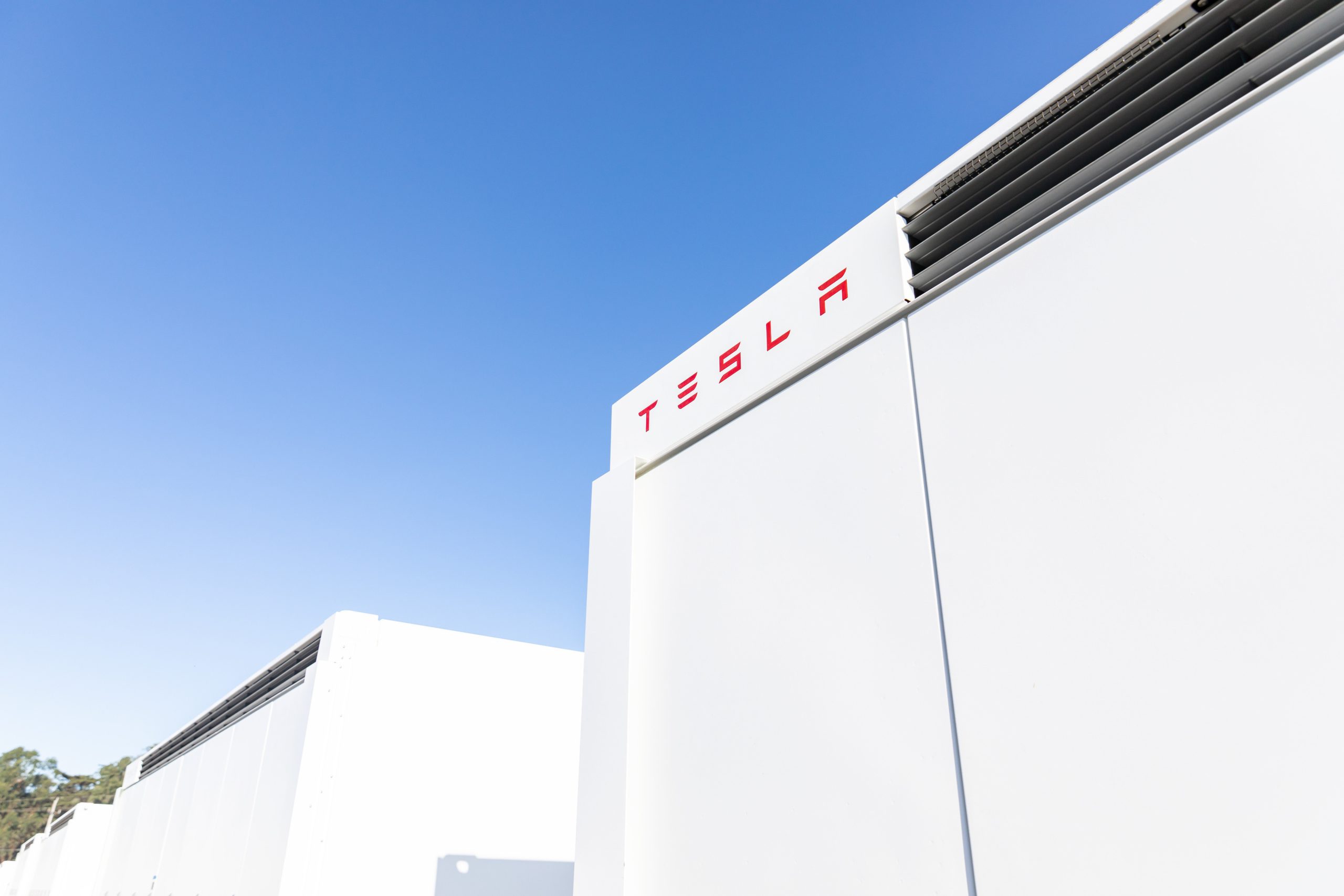
The first of over 300 Tesla Megapacks have arrived to the site of a massive battery energy storage system (BESS) being built in Australia, dubbed the Stanwell Battery Project after a coal plant it’s set to replace.
In a press release last week, the Stanwell Battery Project announced that the first Tesla Megapack 2XL units had arrived to the site, which is located outside of Rockhampton in Queensland, Australia. The project will eventually feature 324 Megapack units, set to arrive in the coming months, in order to support the 300MW/1,200MWh battery project.
“The Stanwell Battery is part of the diversification of our portfolio, to include cleaner and more flexible energy solutions,” said Angie Zahra, Stanwell Central Generation General Manager. “It is just one part of the 800 MW of battery energy storage capacity we have in our pipeline.
“Capable of discharging 300 MW of energy for up to four hours (1,200 MWh), our mega battery will be one of the largest in Queensland.”
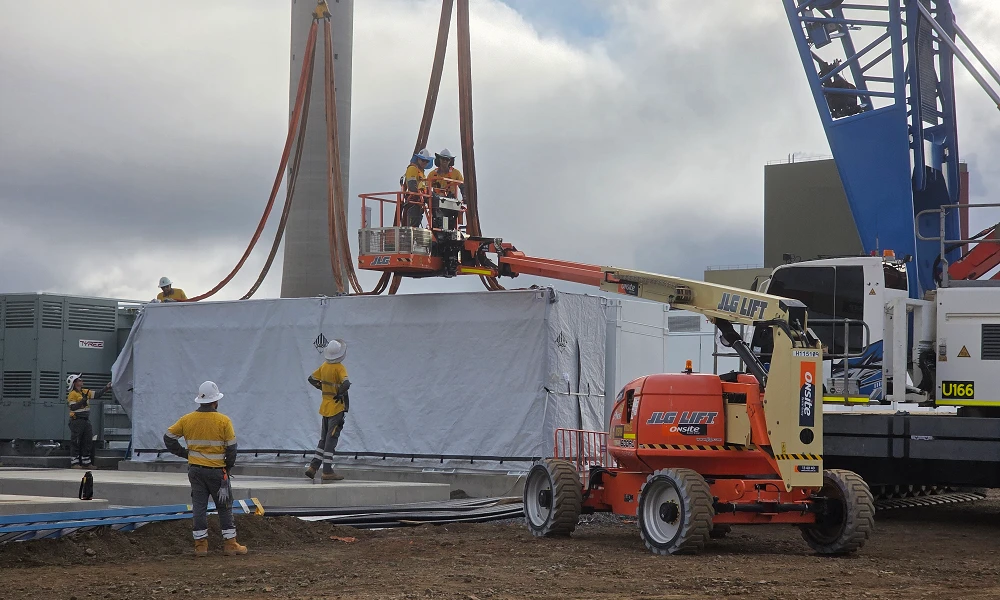
Credit: Stanwell
Did you know Tesla’s Lathrop facility churns out a Megapack every 68 minutes? That’s enough energy to power 3,600 homes for an hour per unit! ⚡️ pic.twitter.com/bG6fpHkB9O
— TESLARATI (@Teslarati) June 11, 2025
READ MORE ON TESLA MEGAPACKS: Tesla Lathrop Megafactory celebrates massive Megapack battery milestone
The state is working with government-owned company Yurika to facilitate construction, and the process is expected to create roughly 80 jobs. The project is expected to come fully online in May 2027, with initial commissioning of the Megapacks aiming for November 2025.
The Stanwell Battery is set to replace the nearby Stanwell coal generation plant, which the government is planning to wind down starting in 2026 as part of efforts to reach an 80 percent renewable energy generation ratio by 2035. Meanwhile, the government is also set to begin winding down the Tarong and Callide coal plants, while several other Megapack projects are being built or coming online. o ya
Tesla currently has two Megapack production facilities, located in Lathrop, California, in the U.S. and another that came online earlier this year in Shanghai, China. The Shanghai Megafactory shipped its first units to Australia in March, while both factories are expected to be capable of producing 10,000 Megapack units per year upon reaching volume production.
News
The Tesla Diner is basically finished—here’s what it looks like
The company first broke ground on the Diner, Drive-in, and Supercharger location in September 2023. Now, it has served one of its first internal customers.

Tesla has finally completed the construction of its highly anticipated Diner, Drive-in, and Supercharger in Los Angeles, and recent photos of the interior’s “retro-futuristic” style are making their way around the internet.
X user Brad Goldberg shared photos from the Tesla Diner site last Tuesday, depicting some of the Supercharger stalls, indoor and outdoor seating areas, multiple neon lights, and even an Optimus robot. Goldberg also noted that there had been a “flurry of activity on site” while he was snapping the photos last week, suggesting that the restaurant location could be getting close to opening.
The Tesla Diner also served one of its first internal customers in the past few days, as Elon Musk posted on X on early Monday morning that he had just finished up eating a meal at the site:
I just had dinner at the retro-futuristic Tesla diner and Supercharger.
Team did great work making it one of the coolest spots in LA!
The photos also show that the site is pretty much done, with some of them even showing vehicles charging at the charging stalls.
You can see some of the latest photos of the Tesla Diner below.
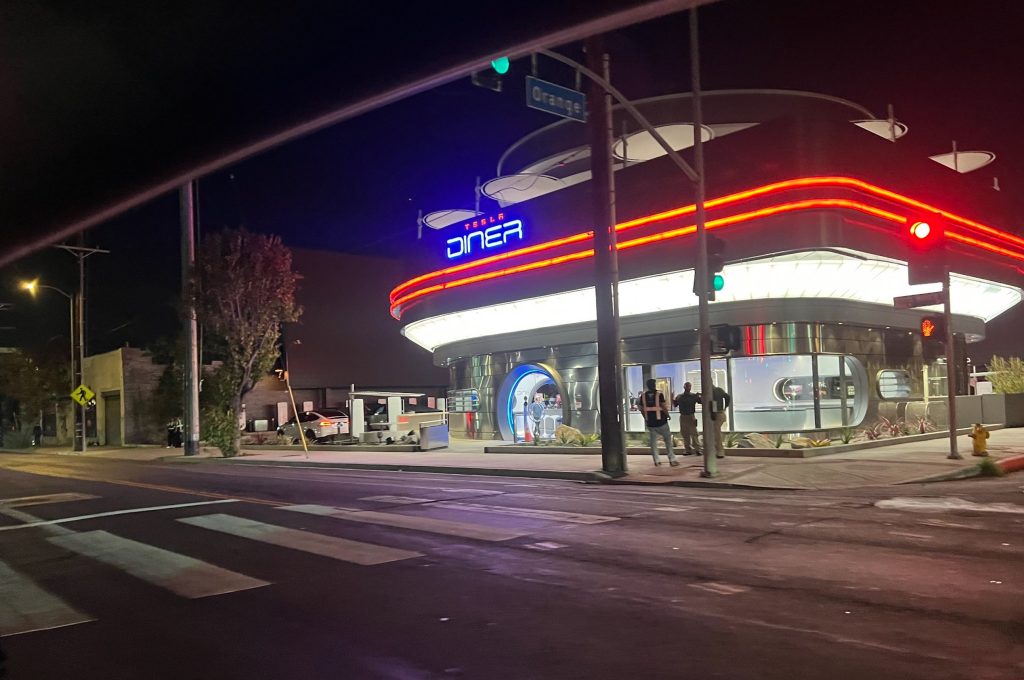
Credit: BradGoldbergMD | X
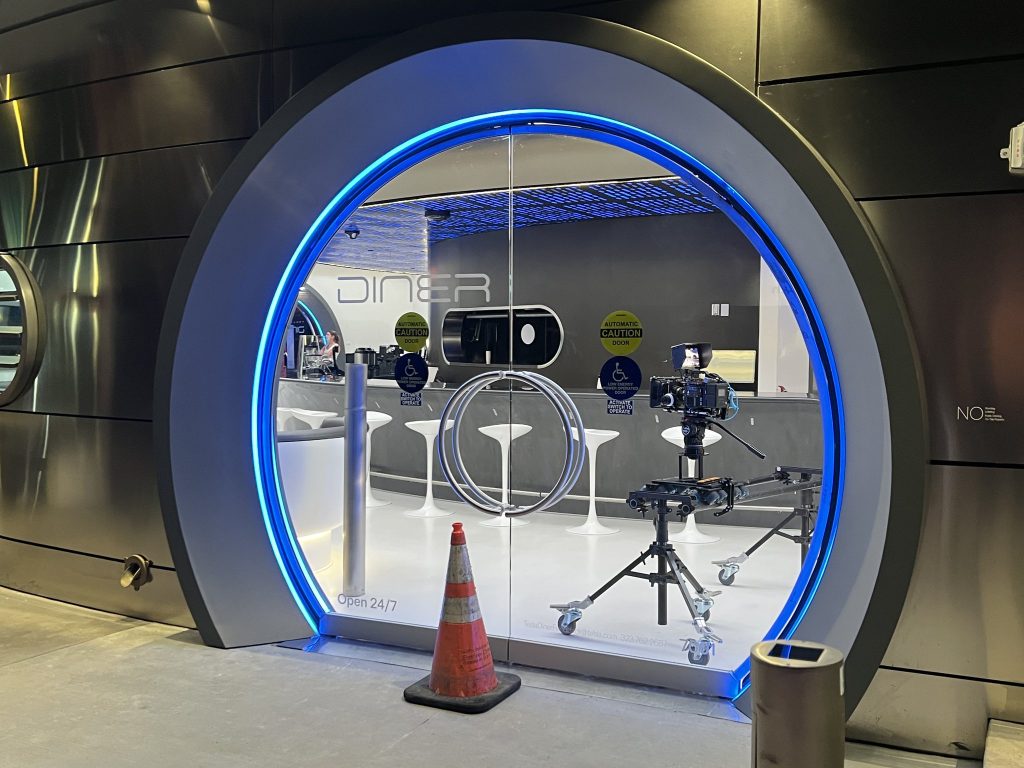
Credit: BradGoldbergMD | X
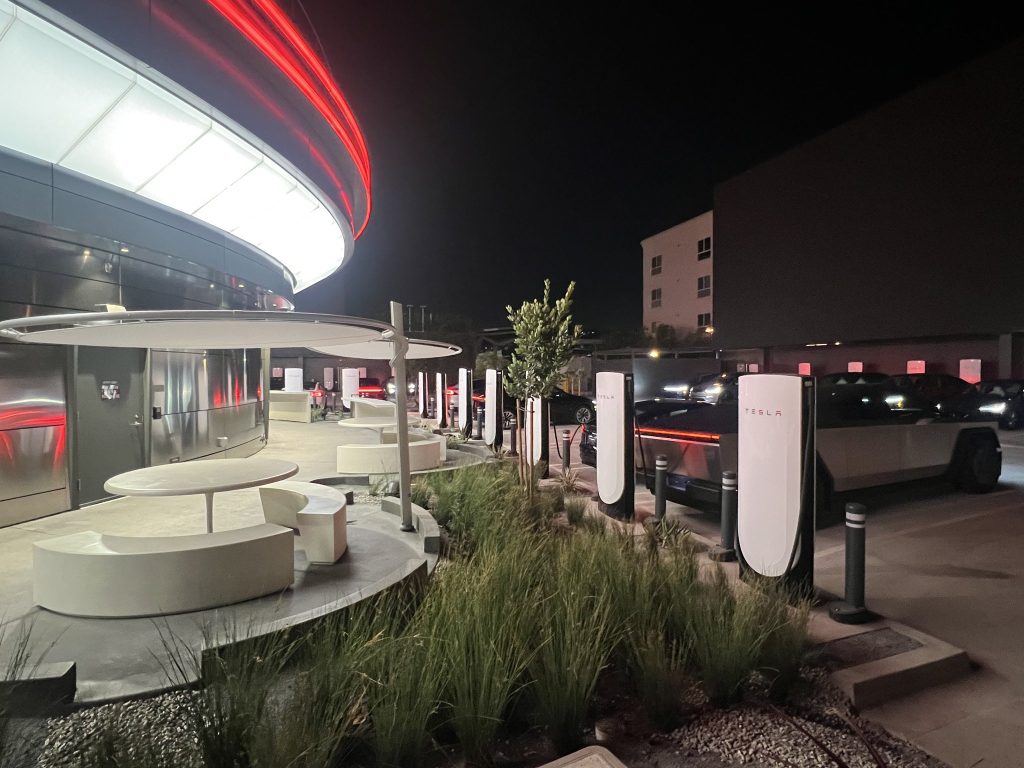
Credit: BradGoldbergMD | X
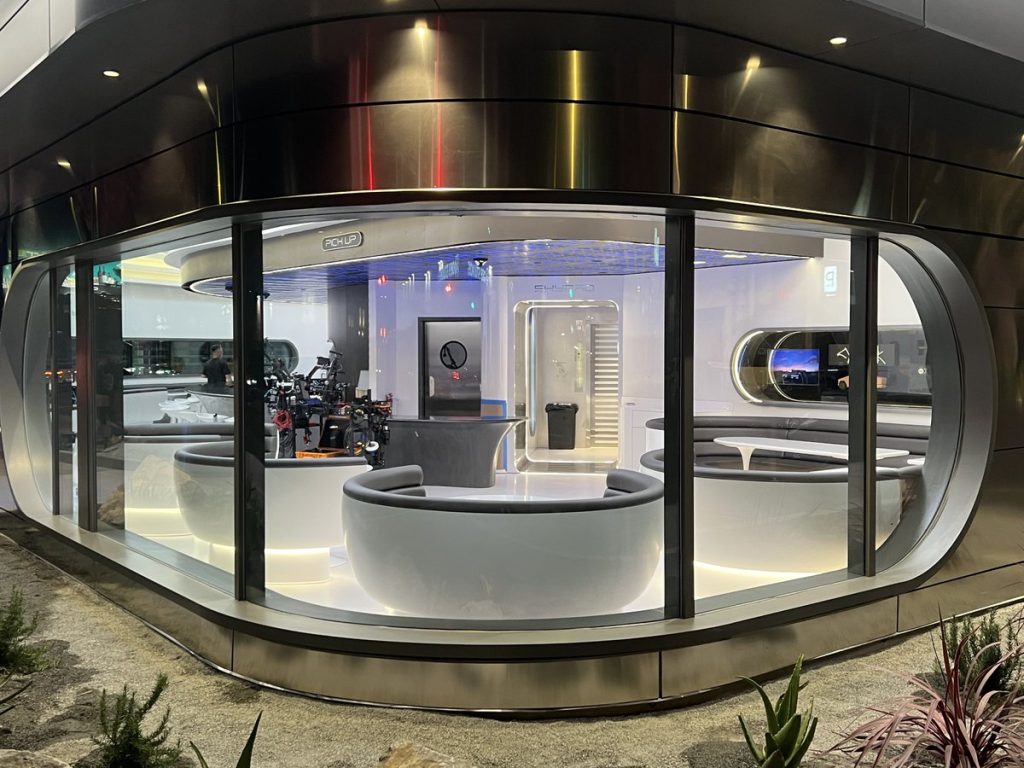
Credit: BradGoldbergMD | X
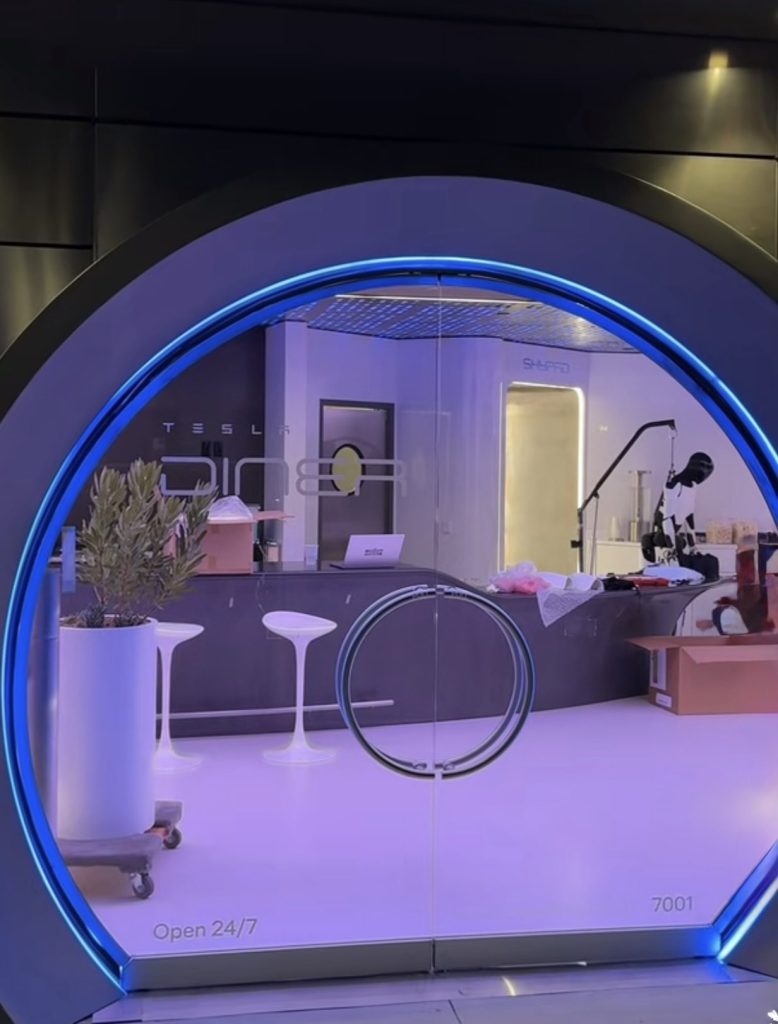
Credit: TeslaKing420 | X
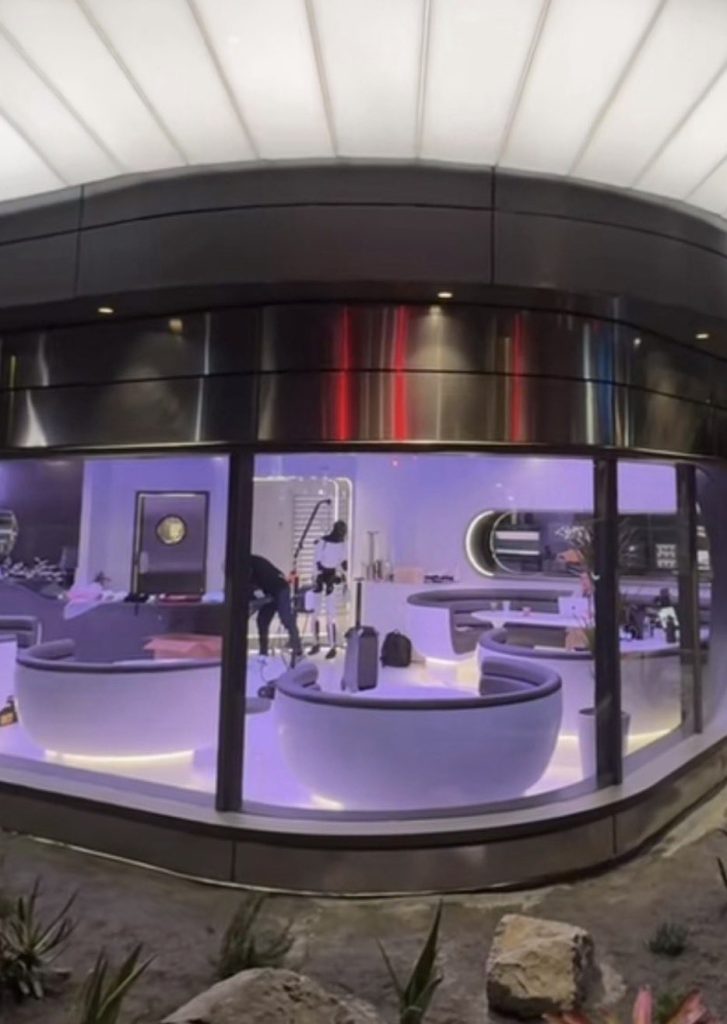
Credit: TeslaKing420 | X
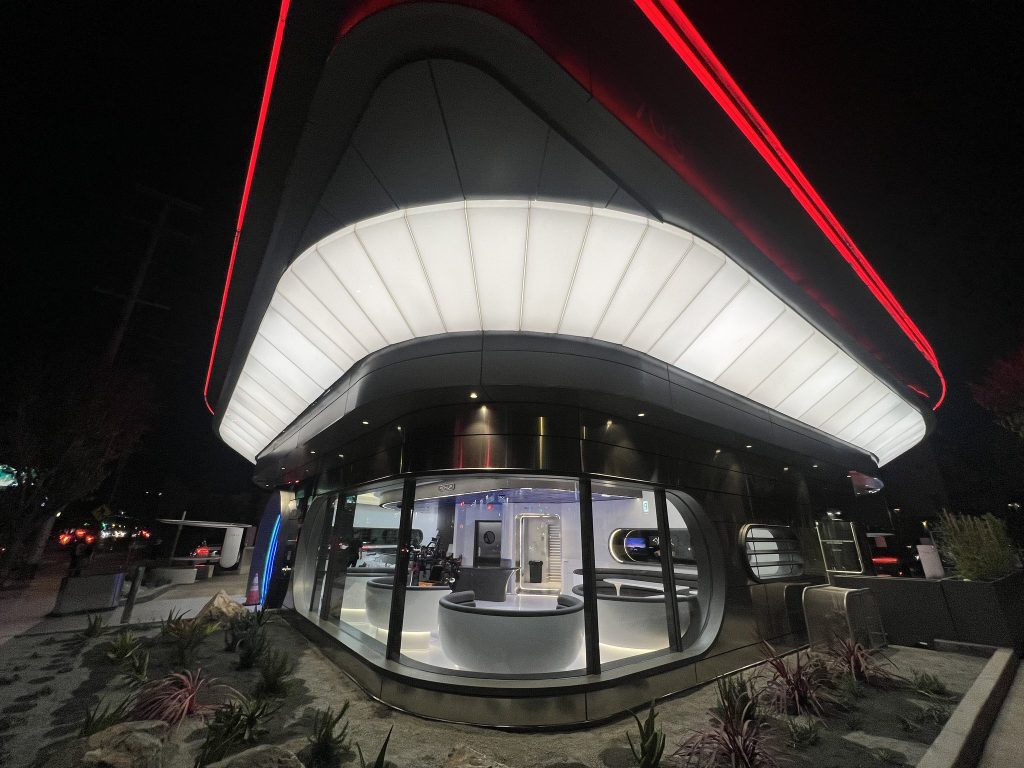
Credit: Brad Goldberg (via Sawyer Merritt on X)
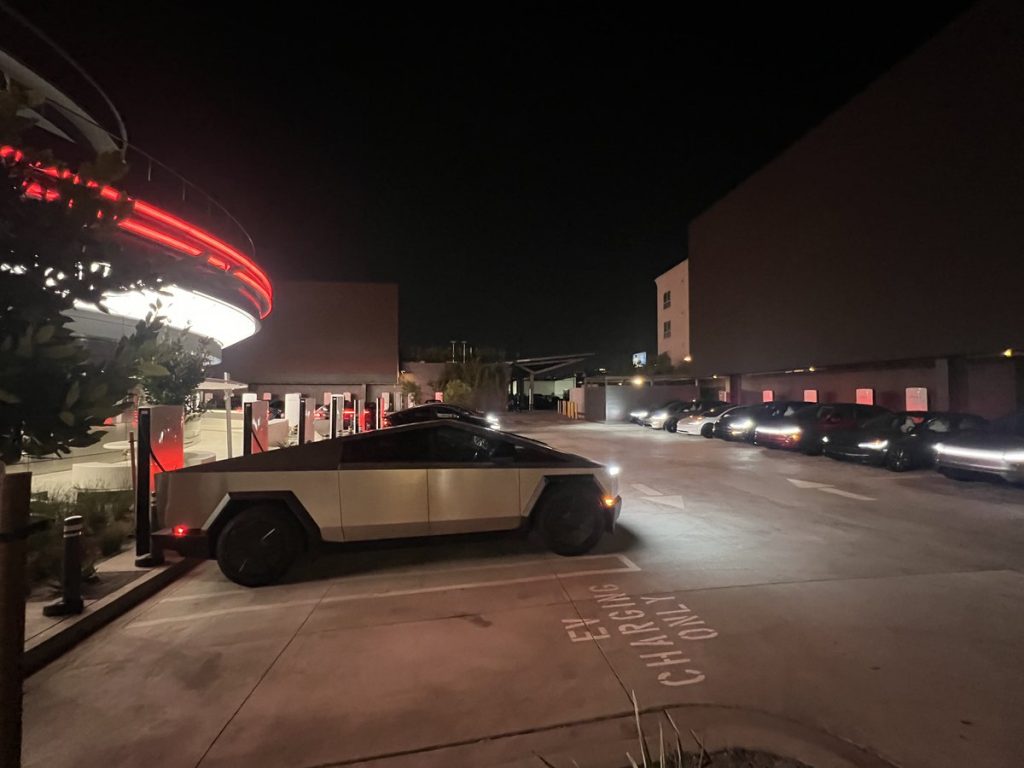
Credit: Brad Goldberg (via Sawyer Merritt on X)
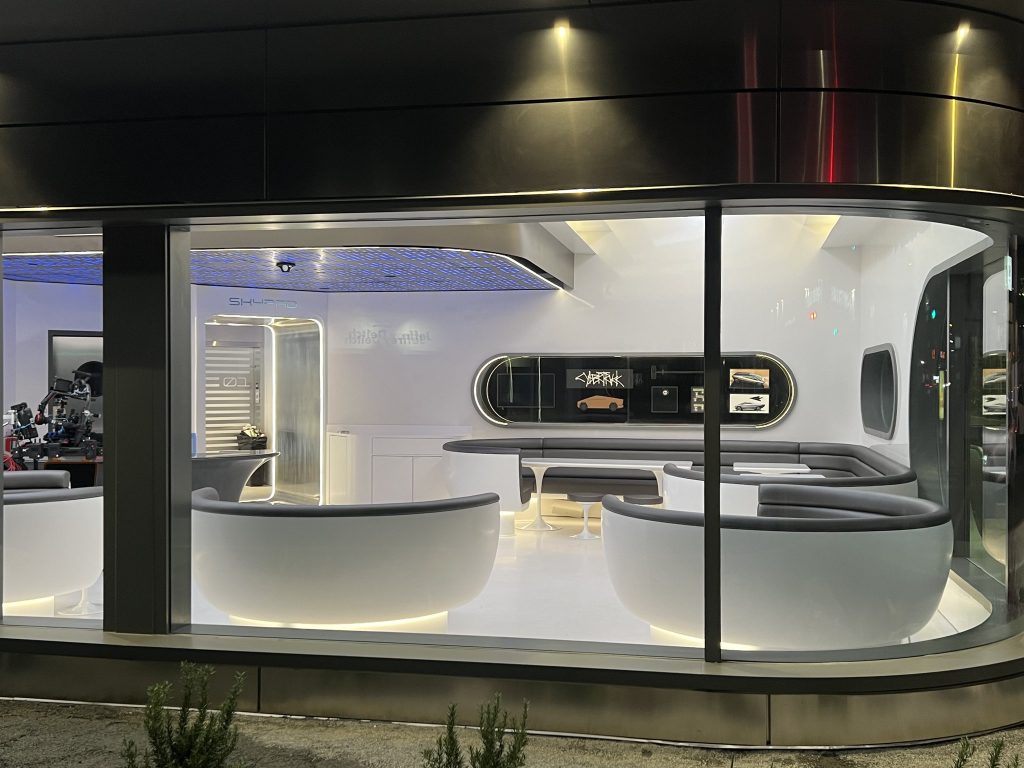
Credit: Brad Goldberg (via Sawyer Merritt on X)
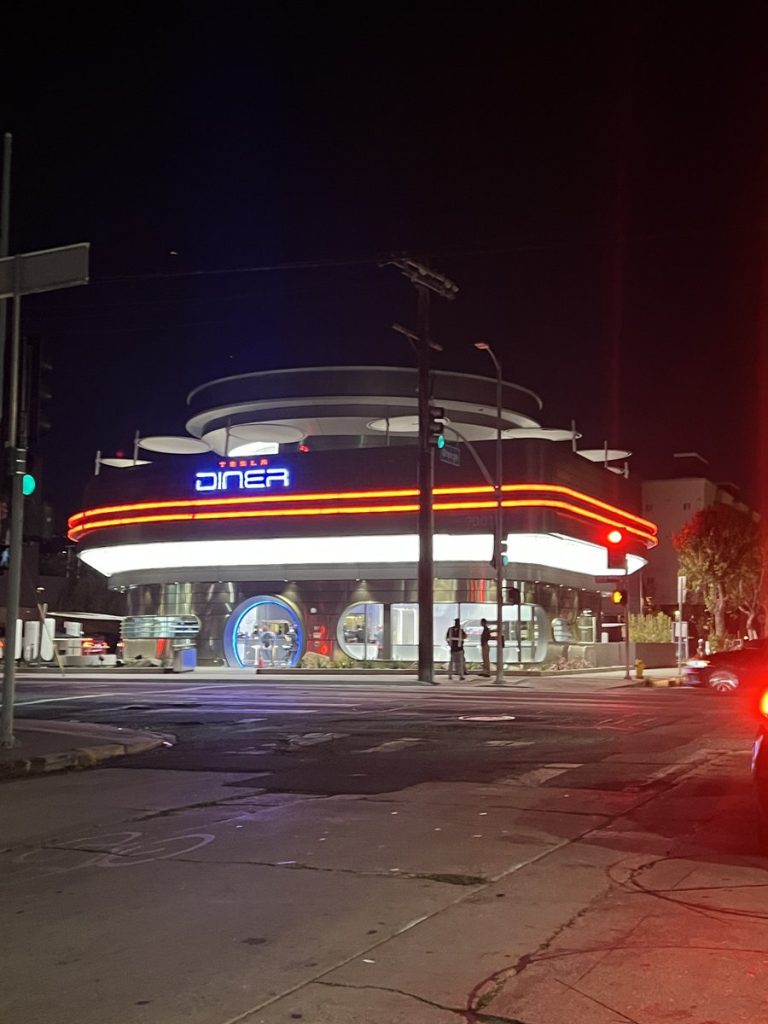
Credit: Brad Goldberg (via Sawyer Merritt on X)
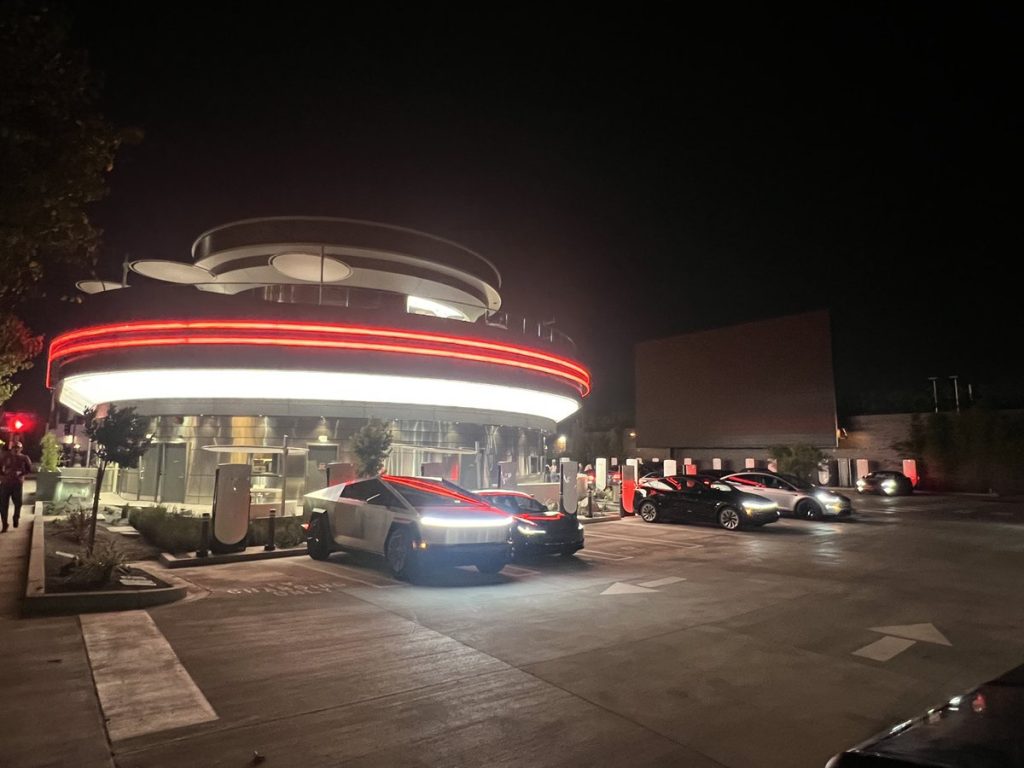
Credit: Brad Goldberg (via Sawyer Merritt on X)
READ MORE ON TESLA’S LA DINER: Tesla readies Drive-In Diner Supercharger for launch with app inclusion
When will the Tesla Diner open to external customers?
While it’s still not open to external customers yet, the news again suggests that the company could be close to an official opening date. Tesla first broke ground on the Diner in September 2023, after receiving a wave of building permit approvals throughout that year. Teslarati also covered much of the construction progress throughout last year, including when crews installed the first and second drive-in screens.
Located at 7001 West Santa Monica Boulevard, the idea was first discussed in 2018 by Musk and a few others on Twitter, featuring 1950s rock and roll, waiters on roller skates, and drive-in movie theater screens playing clips from some of history’s best movies. Notably, the photos of the front doors also show that the site will be open 24 hours a day, 7 days a week, whenever it does end up opening.
Tesla’s progress on Supercharger with diner, drive-in seen in aerial footage
-

 Elon Musk2 weeks ago
Elon Musk2 weeks agoTesla investors will be shocked by Jim Cramer’s latest assessment
-

 News2 days ago
News2 days agoTesla debuts hands-free Grok AI with update 2025.26: What you need to know
-

 Elon Musk4 days ago
Elon Musk4 days agoxAI launches Grok 4 with new $300/month SuperGrok Heavy subscription
-

 Elon Musk6 days ago
Elon Musk6 days agoElon Musk confirms Grok 4 launch on July 9 with livestream event
-

 News1 week ago
News1 week agoTesla Model 3 ranks as the safest new car in Europe for 2025, per Euro NCAP tests
-

 Elon Musk2 weeks ago
Elon Musk2 weeks agoxAI’s Memphis data center receives air permit despite community criticism
-

 News4 days ago
News4 days agoTesla begins Robotaxi certification push in Arizona: report
-

 News2 weeks ago
News2 weeks agoTesla sees explosive sales growth in UK, Spain, and Netherlands in June

